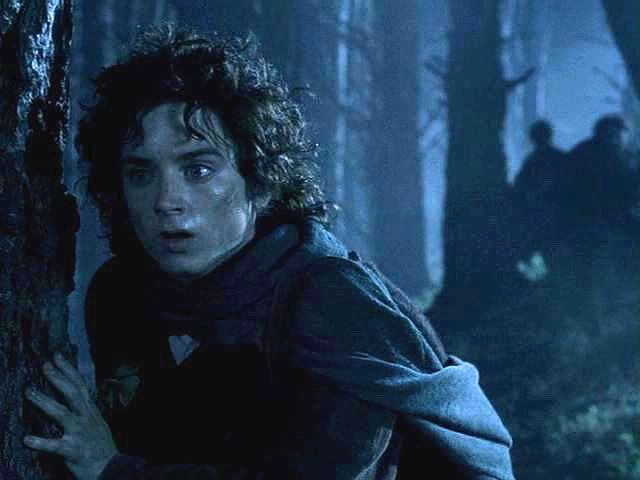If anyone were to ask me what to do in order to improve their writing and get them on the way to publication, I would tell them three things.
1) Read, read, READ!
2) Get a critique group.
3) Attend writer's conferences
Numero Uno: I am all for college. I actually have a lot of years of schooling, so I tend to do shameless plugs about getting a college education. Here goes: Get one! Both stories I've written that have been picked up for publication would not have existed if not for my college education. Did it do me good? I think so! That said, no one gets published because they have a college degree. Your writing must stand on its own. Period. What's the best way to educate yourself in writing technique?
Read, read, READ!
Read anything and everything you can get your hands on. Read every genre of fiction, non-fiction, poetry, even screenplays. The better grasp you can get on different approaches, angles, and styles, the better off you will be as a writer. You will also learn a lot about yourself and your own writing desires by doing this. If you want to write, you MUST read!
(Maybe sometime I'll do a blog about the books that have most influenced my writing. Any takers?)
Number two: Critique groups are a hotly debated topic among both published writers and would-be published writers. There are some who swear by them and others who would rather stop writing than use one. Mostly, these opinions are due to individual experiences. For me, I'm one who swears by my critique group, but I must add an asterisk.
* There are definitely critique groups that do more harm than good. The reason I swear by my group is because they're awesome! More specifically, they work for me. I work for them. We are awesome together. To make a critique group work, you have to find the right one. You have to find people that you like and trust, and that trust you. They have to be sensitive to your feelings, but also willing to give you the harsh--but constructive!--criticism when it needs to be given. They also need to "get" your writing. Sometimes, through no fault of anyone involved, writer and reader just don't click. If you write horror and the people in your group prefer chick lit and have no experience whatsoever with the horror genre, there's going to be problems.
One last note about critique groups: your attitude as a writer will go a long way. If you go into your critique group believe that your writing is awesome and couldn't possibly be improved--in short, if you're looking for a captive audience rather than a critique--your going to have some problems. Go in with an open mind and a positive outlook for gaining valuable insight and improvement on your piece. If all people in the group do this and strive to build each other up, rather than the opposite, your group can't help but be a success!
(Shout-out to my awesome group! They keep me honest, positive, learning and laughing. We have WAY too much fun together!)
Trois: Go to writer's conferences. Okay, I know conferences are expensive and time-consuming, but nothing beats them! Networking with other writers and industry professionals is so fun and so empowering. And the sheer volume of information they throw at you: you won't get that anywhere else. I can't stress how only two measly conferences changed my writing so much--enough to get me published, actually.
After joining the League of Utah writers, I went to their annual conference and LOVED it! The feeling of having hundreds of kindred-spirit writers in the room is indescribable. There are events, workshops, classes, inspirational speakers, industry professionals, (fantastic food! Just sayin'.) and more. The next year, I was stoked to go again. I sat in on a class about how to show and not tell. It was a simple, one hour class that showed you how to take your writing from good to great; to show rather than tell; to avoid passive voice; etc. I don't know about everyone else in the class, but it just clicked for me. I went home completely overwhelmed, feeling like I'd have to completely re-write everything I'd ever written. Okay, I didn't do that, but I did do an overhaul editing cycle on all three of my novels. And guess what? Within a few months, two out of three (the only two I've sent out, yet) had been picked up for publication. That was a direct result of going to this conference.
Enough said?
Website for League of Utah Writers: luwriters.org
So, if you want to write awesomely, read, get a critique group, and attend conferences. Publication is only a rough draft away. Sort of. :D
How would you other writers answer this question?
1) Read, read, READ!
2) Get a critique group.
3) Attend writer's conferences
Numero Uno: I am all for college. I actually have a lot of years of schooling, so I tend to do shameless plugs about getting a college education. Here goes: Get one! Both stories I've written that have been picked up for publication would not have existed if not for my college education. Did it do me good? I think so! That said, no one gets published because they have a college degree. Your writing must stand on its own. Period. What's the best way to educate yourself in writing technique?
Read, read, READ!
Read anything and everything you can get your hands on. Read every genre of fiction, non-fiction, poetry, even screenplays. The better grasp you can get on different approaches, angles, and styles, the better off you will be as a writer. You will also learn a lot about yourself and your own writing desires by doing this. If you want to write, you MUST read!
(Maybe sometime I'll do a blog about the books that have most influenced my writing. Any takers?)
Number two: Critique groups are a hotly debated topic among both published writers and would-be published writers. There are some who swear by them and others who would rather stop writing than use one. Mostly, these opinions are due to individual experiences. For me, I'm one who swears by my critique group, but I must add an asterisk.
* There are definitely critique groups that do more harm than good. The reason I swear by my group is because they're awesome! More specifically, they work for me. I work for them. We are awesome together. To make a critique group work, you have to find the right one. You have to find people that you like and trust, and that trust you. They have to be sensitive to your feelings, but also willing to give you the harsh--but constructive!--criticism when it needs to be given. They also need to "get" your writing. Sometimes, through no fault of anyone involved, writer and reader just don't click. If you write horror and the people in your group prefer chick lit and have no experience whatsoever with the horror genre, there's going to be problems.
One last note about critique groups: your attitude as a writer will go a long way. If you go into your critique group believe that your writing is awesome and couldn't possibly be improved--in short, if you're looking for a captive audience rather than a critique--your going to have some problems. Go in with an open mind and a positive outlook for gaining valuable insight and improvement on your piece. If all people in the group do this and strive to build each other up, rather than the opposite, your group can't help but be a success!
(Shout-out to my awesome group! They keep me honest, positive, learning and laughing. We have WAY too much fun together!)
Trois: Go to writer's conferences. Okay, I know conferences are expensive and time-consuming, but nothing beats them! Networking with other writers and industry professionals is so fun and so empowering. And the sheer volume of information they throw at you: you won't get that anywhere else. I can't stress how only two measly conferences changed my writing so much--enough to get me published, actually.
After joining the League of Utah writers, I went to their annual conference and LOVED it! The feeling of having hundreds of kindred-spirit writers in the room is indescribable. There are events, workshops, classes, inspirational speakers, industry professionals, (fantastic food! Just sayin'.) and more. The next year, I was stoked to go again. I sat in on a class about how to show and not tell. It was a simple, one hour class that showed you how to take your writing from good to great; to show rather than tell; to avoid passive voice; etc. I don't know about everyone else in the class, but it just clicked for me. I went home completely overwhelmed, feeling like I'd have to completely re-write everything I'd ever written. Okay, I didn't do that, but I did do an overhaul editing cycle on all three of my novels. And guess what? Within a few months, two out of three (the only two I've sent out, yet) had been picked up for publication. That was a direct result of going to this conference.
Enough said?
Website for League of Utah Writers: luwriters.org
So, if you want to write awesomely, read, get a critique group, and attend conferences. Publication is only a rough draft away. Sort of. :D
How would you other writers answer this question?






.JPG)
.JPG)















